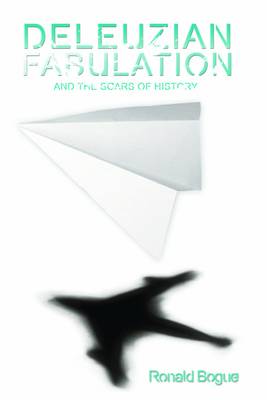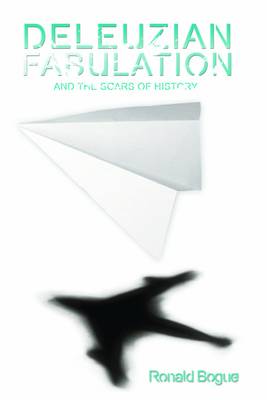
Door een staking bij bpost kan je online bestelling op dit moment iets langer onderweg zijn dan voorzien. Dringend iets nodig? Onze winkels ontvangen jou met open armen!
- Afhalen na 1 uur in een winkel met voorraad
- Gratis thuislevering in België vanaf € 30
- Ruim aanbod met 7 miljoen producten
Door een staking bij bpost kan je online bestelling op dit moment iets langer onderweg zijn dan voorzien. Dringend iets nodig? Onze winkels ontvangen jou met open armen!
- Afhalen na 1 uur in een winkel met voorraad
- Gratis thuislevering in België vanaf € 30
- Ruim aanbod met 7 miljoen producten
Zoeken
Omschrijving
The concept of fabulation makes a late appearance in Deleuze's career and in only limited detail, but by tracing its connections to other concepts and situating them within Deleuze's general aesthetics, Ronald Bogue develops a theory of fabulation which he proposes as the guiding principle of a Deleuzian approach to literary narrative.Fabulation, he argues, entails becoming-other, experimenting on the real, legending, and inventing a people to come, as well as an understanding of time informed by Deleuze's Chronos/Aion distinction and his theory of the three passive syntheses of time. In close readings of contemporary novels by Zakes Mda, Arundhati Roy, Roberto Bolaño, Assia Djebar and Richard Flanagan, he demonstrates the usefulness of fabulation as a critical tool, while exploring the problematic relationship between history and story-telling which all five novelists adopt as a central thematic concern.This is an original and exciting project by a highly respected specialist in the field.
Specificaties
Betrokkenen
- Auteur(s):
- Uitgeverij:
Inhoud
- Aantal bladzijden:
- 256
- Taal:
- Engels
- Reeks:
Eigenschappen
- Productcode (EAN):
- 9780748641314
- Verschijningsdatum:
- 5/07/2010
- Uitvoering:
- Hardcover
- Formaat:
- Genaaid
- Afmetingen:
- 155 mm x 236 mm
- Gewicht:
- 544 g

Alleen bij Standaard Boekhandel
+ 311 punten op je klantenkaart van Standaard Boekhandel
Beoordelingen
We publiceren alleen reviews die voldoen aan de voorwaarden voor reviews. Bekijk onze voorwaarden voor reviews.











